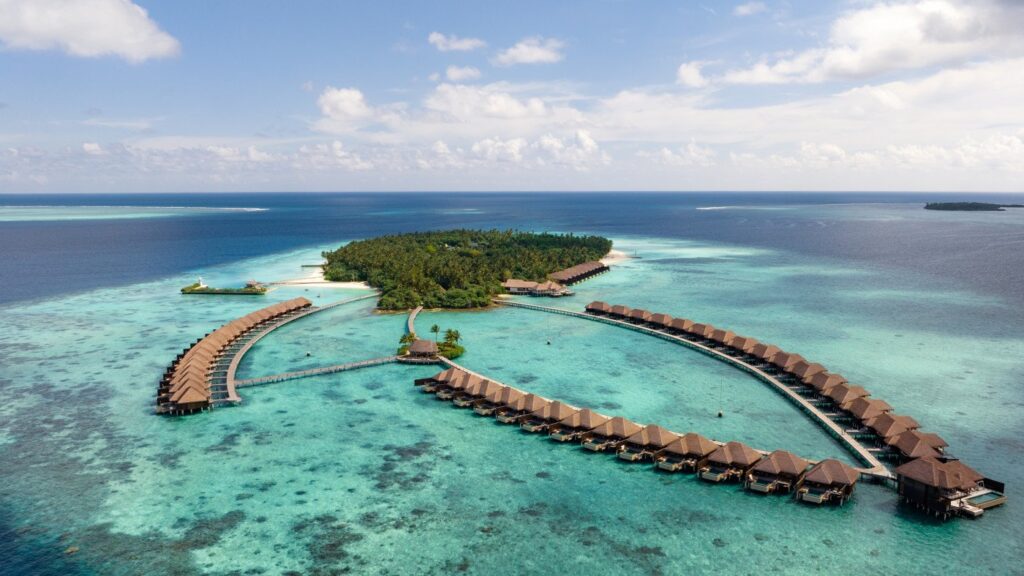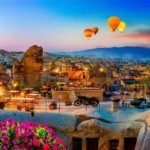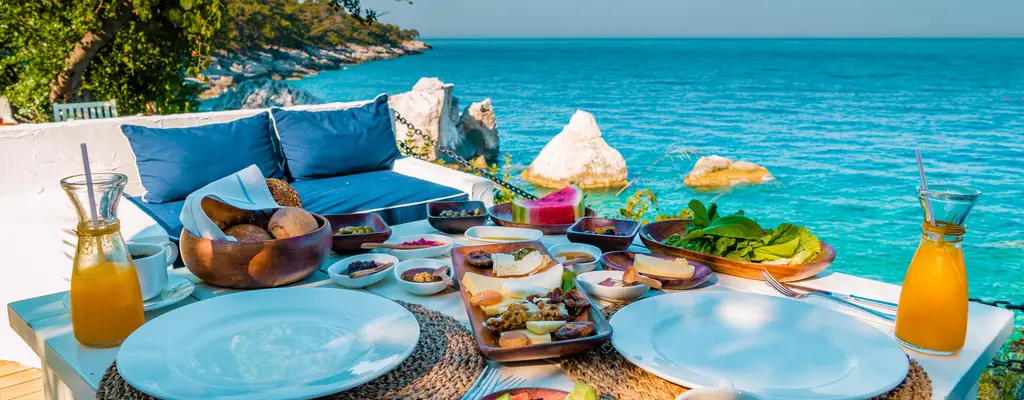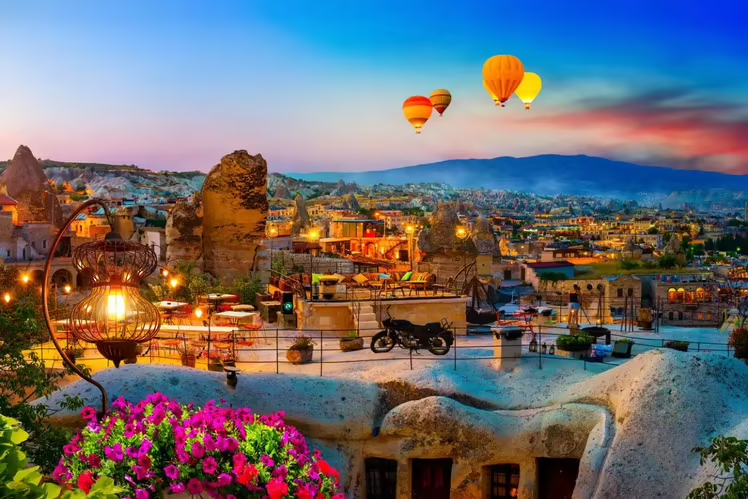Exploring Saudi Arabia Beyond Umrah: Halal-Friendly Destinations
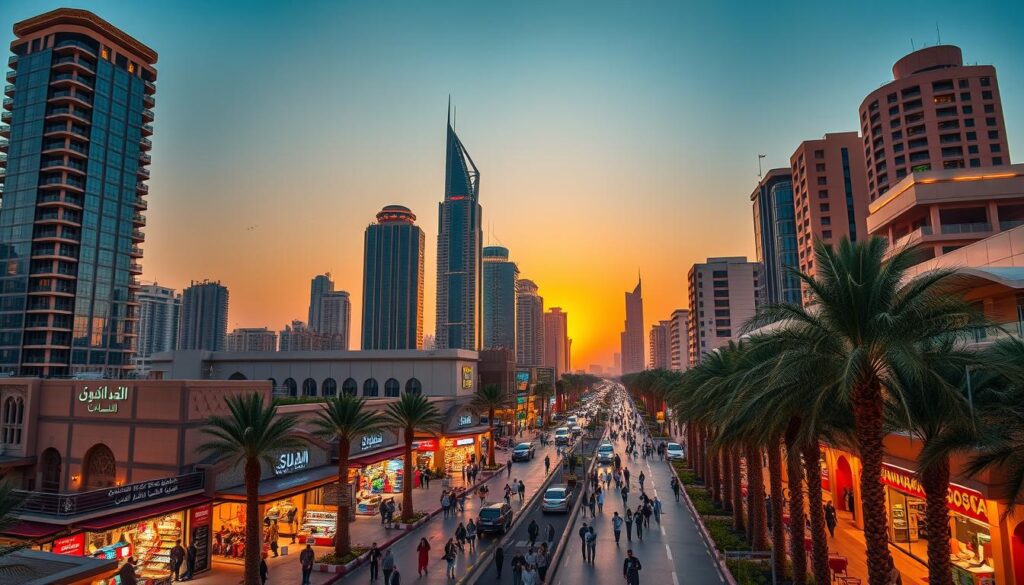
For decades, the narrative of travel to Saudi Arabia has rightfully centered on the deeply spiritual journey of Hajj and Umrah. The holy cities of Makkah and Madinah draw millions, fulfilling a fundamental pillar of faith. However, Saudi Arabia is currently undergoing a massive cultural and infrastructural transformation, opening its doors to international tourism as never before.
The Kingdom offers a treasure trove of historical, natural, and futuristic halal sites that are perfectly suited for halal travel Saudi Arabia. If you’re looking to explore the Arabian Peninsula with guaranteed muslim-friendly Saudi tourism infrastructure, look no further than these spectacular destinations beyond the two Holy Mosques.
A Seamless Experience: Halal Travel in Saudi Arabia
The beauty of choosing Saudi Arabia for a Muslim-friendly holiday is that the entire country is, by nature, a halal destination. Every restaurant, hotel, and public space adheres to Islamic principles, eliminating the need to search for prayer rooms or certified halal food.
- Food: All meat served across the Kingdom is Halal certified.
- Prayer: Every public space, mall, and destination has clearly marked and easily accessible prayer facilities.
- Modesty: While dress codes are relaxing, modest dressing is standard across society, making it effortless for Muslim travelers to feel comfortable.
This innate foundation of halal travel Saudi Arabia allows visitors to focus entirely on the incredible landscapes and rich history awaiting them.
1. Jeddah: The Historical Gateway to the Red Sea
As the traditional port city for pilgrims arriving for Hajj, Jeddah has always been a city of cultural exchange. Today, it stands as the vibrant, artistic, and cosmopolitan heart of Saudi Arabia, offering a perfect blend of old-world charm and modern luxury.
Al-Balad: UNESCO World Heritage Site
No trip to Jeddah is complete without exploring Al-Balad (The Old Town). This UNESCO World Heritage site is a maze of ancient coral stone houses, towering up to five stories high, famous for their intricately carved wooden Roshan (rawashin) window screens. Walking through the narrow alleyways feels like stepping back centuries, offering incredible photography opportunities and a glimpse into the city’s seafaring past.
- Muslim-Friendly Saudi Tourism Tip: Visit in the late afternoon. As the muezzin calls for Maghrib prayer, find a spot to enjoy traditional Hijazi cuisine from one of the many small, authentic eateries.
Jeddah Corniche and the Floating Mosque
The redesigned Jeddah Corniche stretches for miles along the Red Sea, offering beautiful promenades, parks, and dining options. The highlight is the Al-Rahmah Mosque, often referred to as the Floating Mosque. Built on stilts over the water, this pristine white structure offers a stunning backdrop for prayer at sunrise or sunset.
2. AlUla: The Ancient Arabian Wonder
AlUla is Saudi Arabia’s answer to Petra, a stunning desert landscape that served as a vital crossroads for ancient trade routes. This site is central to the Kingdom’s push for halal travel Saudi Arabia, showcasing pre-Islamic and Nabataean history.
Hegra (Mada’in Salih): Saudi Arabia’s Petra
Hegra is the Kingdom’s first UNESCO World Heritage Site and the largest conserved site of the Nabataean civilization south of Petra in Jordan. Here, you can witness massive, incredibly preserved tombs carved directly into towering sandstone rock formations.
- Significance for Halal Sites: Exploring Hegra offers a profound connection to the ancient Arabian civilizations mentioned in Islamic history. The area also hosts beautiful geological formations and vast desert vistas, perfect for quiet reflection.
Dadan and Jabal Ikmah
Beyond the Nabataeans, AlUla was home to the ancient kingdoms of Dadan and Lihyan. Visit Jabal Ikmah, often called the “open-air library,” where thousands of inscriptions and ancient rock art are etched into the cliffs, recording the history of the caravans that passed through.
3. Riyadh: The Modern Cultural Capital
Riyadh, the sprawling capital, is a city of sharp contrasts, blending historical sites with spectacular, ultramodern architecture. It is the perfect destination for muslim-friendly Saudi tourism focused on contemporary culture, museums, and commerce.
Diriyah: The Birthplace of the Kingdom
Just outside Riyadh lies Diriyah, the original home of the Saudi royal family and the first capital of the Saudi state. The Turaif District, a UNESCO World Heritage Site, is a spectacular example of traditional Najdi architecture, meticulously restored.
- Halal Sites Experience: The restored mud-brick buildings and palm groves are beautifully illuminated at night, offering a peaceful and highly evocative evening visit.
The Kingdom Centre and Al Faisaliah Tower
To experience the modern face of the city, visit the Kingdom Centre (with its distinctive SkyBridge) and the Al Faisaliah Tower (with its golden globe top). These towers offer panoramic views of the entire city, providing a striking contrast to the historical sites.
4. The Coastal Beauty of the Eastern Province
While the West Coast is famous for the Red Sea, the Eastern Province offers a distinct coastal experience along the Arabian Gulf, centered around Dammam and Al Khobar.
The Corniche and King Abdulaziz Centre for World Culture (Ithra)
The Al Khobar Corniche is a popular family-friendly spot with long stretches of landscaped parks and playgrounds. The highlight of the region is Ithra, an architectural masterpiece and a cultural hub that hosts a library, a museum, a theater, and continuous art exhibitions, all operating with halal-friendly schedules and programming.
- Muslim-Friendly Saudi Tourism Tip: The Eastern Province is near Bahrain, making it a viable option for a relaxed Gulf stopover combined with other regional travel.
5. The Southern Highlands: Abha and Soudah
For travelers seeking cool climates and stunning natural beauty, the mountainous regions of Asir province are a must. Abha is the main city, known for its mild, often misty, weather and unique culture.
Soudah National Park
Soudah is the highest point in Saudi Arabia, where dense juniper forests and dramatic peaks create a landscape entirely different from the desert. The cooler temperatures make it an ideal summer escape.
- Halal Travel Saudi Arabia Experience: Enjoy a leisurely hike or take a cable car ride up the steep slopes for breathtaking views of the valleys. This region provides an excellent opportunity for family picnics and outdoor activities in a quiet, natural environment.
Logistics and Practical Bottle Feeding Tips
While the destinations are the focus, the practical aspects of halal travel Saudi Arabia are straightforward:
- Visas: The introduction of the e-Visa for tourism has made entry much simpler for most nationalities.
- Transportation: Saudi Arabia has excellent, modern highways. Renting a car offers the most flexibility, though domestic flights connect major hubs efficiently. The Haramain High-Speed Railway connects Makkah, Jeddah, and Madinah.
- Accommodation: From global luxury hotel chains (offering discreet fitness and spa facilities) to boutique heritage hotels in Al-Balad, all accommodations meet the highest standards of Islamic modesty and service.
Exploring Saudi Arabia beyond the spiritual centers reveals a nation of profound beauty, deep history, and exciting ambition. By focusing on these spectacular halal sites, travelers can experience the modern face of the Arabian Peninsula with the confidence of knowing their holiday adheres perfectly to muslim-friendly Saudi tourism standards. It is a journey that promises history, culture, and nature, all within a seamlessly integrated framework of faith.






